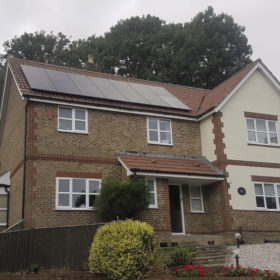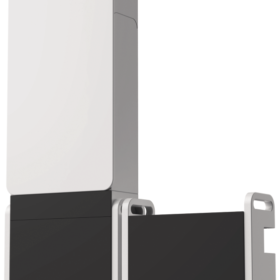FoxESS and Tsingshan: A PV and battery powerhouse
The tipping point is near, where the combination of solar PV and battery storage will revolutionize distributed energy generation, be it for the home or business. According to BloombergNEF and the U.S. Business Council for Sustainable Energy, PV panel prices have dropped by 77% and lithium-ion battery prices by 87% in the past decade.
Stepping into rooftop solar+storage … with strong backing
Michael Zhu is the co-founder and CEO of FoxESS, a new player in the solar+storage market backed by large coffers, cheap product resources, and a team of experienced industry professionals. Zhu says his company is stepping into the game with the strength that is necessary to elevate the market and further support the energy transition.
A powerful combination to drive solar PV and battery storage globally
FoxESS is a new entrant to the global PV and energy storage markets. Its founder and CEO Michael Zhu is an industry veteran who has led other Chinese inverter manufacturers in the supply of distributed PV and energy storage solutions. FoxESS is backed by Tsingshan Group, which is ranked number 361 among the world’s Fortune 500 companies.
From nickel to energy
China-based private stainless steel giant Tsingshan Group is now exploring a new frontier with its entrance into the clean energy industry. Nickel is one of the most crucial raw materials being used for lithium NMC (nickel manganese cobalt oxide) batteries, which have become the leading lithium-ion battery technology behind the rise of electric vehicles (EV) and energy storage systems (ESS).
Shifting all eyes on the U.K.
The United Kingdom’s residential solar+storage market stalled in 2018 due to a policy vacuum. But industry optimism is back, with the market recovering and showing signs of growth as new and unique players continue to raise the bar.
Storage: Going virtual in Australia
Reposit Power is a market leader in Australia, deploying virtual power plant software that optimizes distributed energy resources and battery usage. The company says that it’s the only VPP provider registered with the Australian Energy Market Operator that is not still in a trial phase, as it is the first to appear in the open market. Dean Spaccavento, CEO of Reposit Power, spoke with pv magazine to discuss the Australian market, policy, and changes in the industry.
The new squad eyes batteries
The residential solar sector has been going through some fundamental changes over the last few years, with new business models and technology approaches being brought to the market. Storage, above all, will make quite an impact on the residential inverter landscape. The market is now witnessing the emergence of new inverter models that are purpose-built for storage integration.
Banking on batteries, charging on nickel
The nickel compound obtained from mining is six production steps away from the precursor materials for cathodes in lithium-ion battery cells, which are key for cost and performance. If you want to participate in the smart energy future of storage, you have to invest heavily, like Tsingshan Group is doing.
Virtually everything is an asset
The transition toward a decarbonized energy future requires stakeholder collaboration across the industry. And if you want to balance interests and keep the lights on, you have to balance the grid. This was a key lesson learned in Europe in 2012 when the first virtual power plant (VPP) was conceived.









